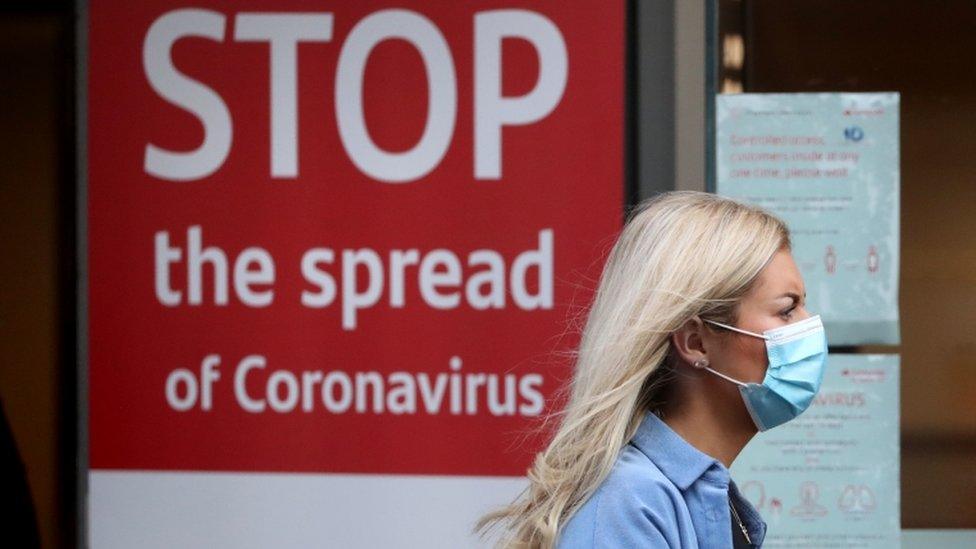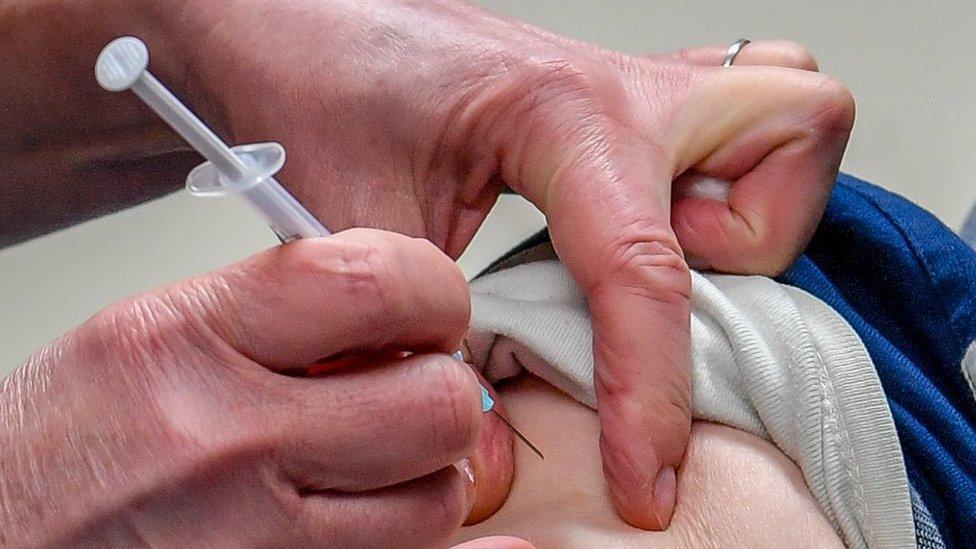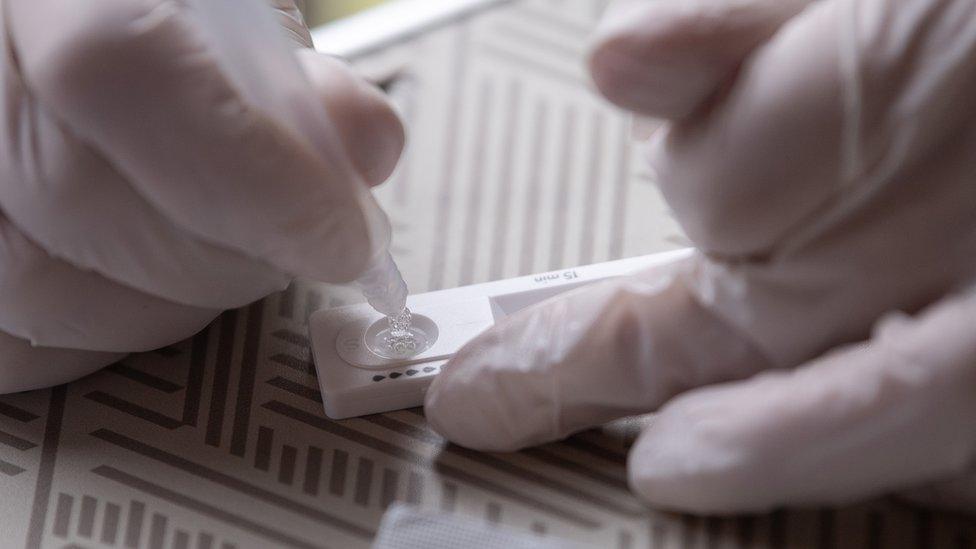Covid: New Manx isolation rules formally approved
- Published

The new rules mean a PCR test is no longer required to confirm a positive lateral flow test
New Covid-19 rules allowing people on the Isle of Man to leave isolation early have been backed by Tynwald.
People will be able to leave quarantine at any stage so long as they record two negative lateral flow tests at least 24 hours apart.
The new rules also mean a PCR test is no longer required to confirm a positive home test.
Chief Minister Alfred Cannan said the changes would prevent "perfectly healthy" people being unable to work.
The new rules came into force on 22 December amid the continued spread of the new Omicron coronavirus variant, but were formally approved by politicians at a special sitting of Tynwald on Tuesday.
Mr Cannan said the new system had already allowed over 1,000 people to leave isolation early, with the average period of isolation being between five and six days.
There are currently 2,750 active cases of the virus on the island, the highest number since the start of the pandemic, with 10 people receiving treatment in Noble's Hospital.
'Proportionate'
The changes also mean close contacts of a positive case are no longer required to isolate but are instead encouraged to self-test daily for a week.
Under the previous rules, everyone in the household of someone suspected of having the Omicron variant was required to isolate for the 10-day period.
Mr Cannan said that regime had the potential to have a "serious impact on the delivery of critical public services and the ability of the island's economy to function" as the number in isolation increased.
The changes were "appropriate and proportionate" and would "help to protect the island's infrastructure and crucial services", he added.

Why not follow BBC Isle of Man on Facebook, external and Twitter, external? You can also send story ideas to IsleofMan@bbc.co.uk, external
- Published24 December 2021

- Published21 December 2021

- Published20 December 2021

- Published17 December 2021

- Published11 December 2021

- Published28 November 2021
